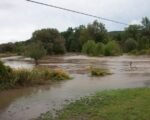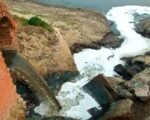In a decisive move to protect its aquatic ecosystems, Colorado has established permanent aquatic pest inspection stations at key entry points. This initiative is part of a broader strategy to combat the spread of invasive zebra mussels, which pose a significant threat to local waterways and infrastructure.
The Onslaught of Invasive Species
Zebra mussels, small bivalves native to Eastern Europe, have been a concern for Colorado’s water management authorities since their first detection in 2007. These mussels can clog pipelines, disrupt ecosystems, and outcompete native species. The state has responded by setting up inspection and decontamination stations at the Trinidad Port of Entry on I-25 and the Loma Port of Entry on I-70. These stations operate from March 14 through October 31, focusing on high-risk watercraft.
The inspection process is streamlined if boat owners clean and dry their vessels before entering the state. Those that pass the inspection receive a green seal and white receipt, while those requiring decontamination are treated on-site. This measure is a first line of defense, ensuring that Colorado’s lakes and reservoirs remain free of these destructive pests.

A Proactive Approach to Conservation
The establishment of permanent stations follows a successful pilot program that saw 95 watercraft inspected and 60 decontaminated, with 26 confirmed to have adult mussels. The program’s expansion reflects Colorado Parks and Wildlife’s (CPW) commitment to preserving the state’s natural resources. By intercepting potentially infested watercraft at ports of entry, CPW aims to prevent the introduction and spread of zebra mussels into Colorado’s waters.
This proactive approach is crucial as evidence of potential infestations in various lakes and reservoirs, including deep cold-water mountain reservoirs, has been found. The permanent stations are a testament to the state’s dedication to its aquatic ecosystems and the prevention of ecological and economic damage caused by invasive species.
The Future of Aquatic Ecosystem Protection
The fight against zebra mussels is ongoing, and the permanent inspection stations are just one part of a comprehensive strategy. Education, monitoring, and continued research are essential components of this battle. Colorado’s efforts serve as a model for other states facing similar challenges, highlighting the importance of early detection and rapid response in the management of invasive species.
As the program continues to evolve, it will play a pivotal role in safeguarding Colorado’s waterways for future generations. The success of these measures will depend on the cooperation of boaters, conservationists, and the community at large, working together to protect the state’s precious water resources.














